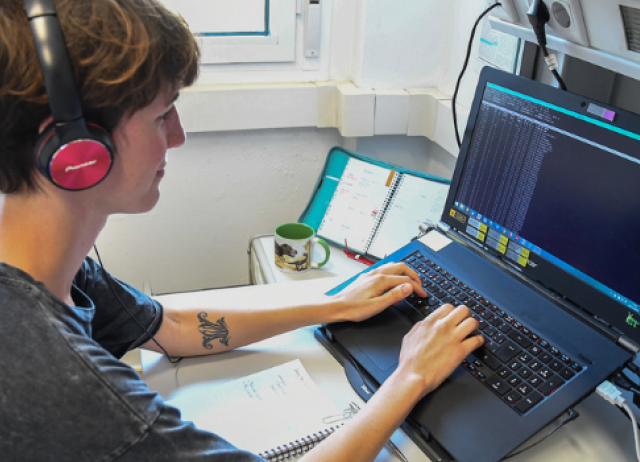Paula Arribas receives a Junior Leader postdoctoral fellowship from La Caixa Foundation
The IPNA-CSIC researcher Paula Arribas has received one of the 45 Junior Leader postdoctoral fellowships from La Caixa Foundation. More than 700 people attended the call and of only 45 selected, 20 are Spanish (from 14 provinces) and 25 were from 14 other countries.
Paula Arribas (Albacete, 1984) has a degree in environmental sciences at the University of Murcia and a master's degree in biodiversity at the Ibero-American Centre for Biodiversity of the University of Alicante. In 2013, she defended her PhD thesis and was awarded the degree of Doctor in Biology (excellent cum laude, University of Murcia), at both Spanish and European levels. Subsequently, she had postdoctoral stays at Imperial College London (2014-2016) and at the IPNA-CSIC (2016 - to date). Through her research, she aims to understand the processes that generate biodiversity and influence its spatial and temporal structure, as well as to integrate this information into a conservation context.
Paula Arribas has published 42 articles (JCR) and three book chapters, collaborating with more than 25 international institutions and participating in 26 projects. She co-supervised the theses of two doctoral students and has taught more than 180 hours of classes. Having been an external reviewer for more than 15 scientific journals, she is on the editorial board of two of them, and has acted as a project reviewer for the Spanish Agencia Nacional de Evaluación y Prospectiva (ANEP), which assesses funding applications. She has presented more than 20 contributions to congresses, has carried out fieldwork in six countries and participated in numerous outreach activities at the Natural History Museum in London and at the IPNA-CSIC.
Protect soil biodiversity
Twenty-five percent of the total biodiversity of our planet is found in soils, but these remain one of the last biotic frontiers of human knowledge. Recent international initiatives have highlighted the urgent need to protect soil biodiversity. One of the main threats of global change is the effect of exotic species on native biodiversity. Most of the research in this field has focused on aerial organisms living above the soil surface, but the growing extent to which such outside species have become introduced into soils can have dramatic consequences, particularly on islands. It is surprising that until now this phenomenon has been scarcely studied. In this project, this urgent problem will be addressed for the first time, through an assessment of the magnitude and dynamics of this ongoing introduction of alien species into soils.
The project focuses on the Canary Islands as a model system. It includes developing new molecular and bioinformatic tools to use genomic data at a community scale to detect and quantify introduced species in island soils. The project will identify the main factors responsible for the introduction and establishment of recently arrived fauna, and will generate essential resources for biomonitoring, early detection, and development of new legislation, to deal with this global threat. The project will constitute an important contribution to the understanding and conservation of soil biodiversity, one of the main sources of natural solutions to address global challenges.
About Junior Leader
The Junior Leader programme is co-financed by the European Commission through the Marie Skłodowska-Curie COFUND Action, within the framework of Horizon 2020. It is aimed at recruiting excellent researchers, of any nationality, who wish to continue their research career in Spanish or Portuguese territory in the areas of health and life sciences, technology, physics, engineering and mathematics.
These postdoctoral fellowships have a duration of three years and an endowment of 305,100 euros each. They include a complementary training programme, with the aim of consolidating research skills and promoting an independent scientific career as a future professional option. This programme deals with topics such as leadership, conflict resolution and communication.
